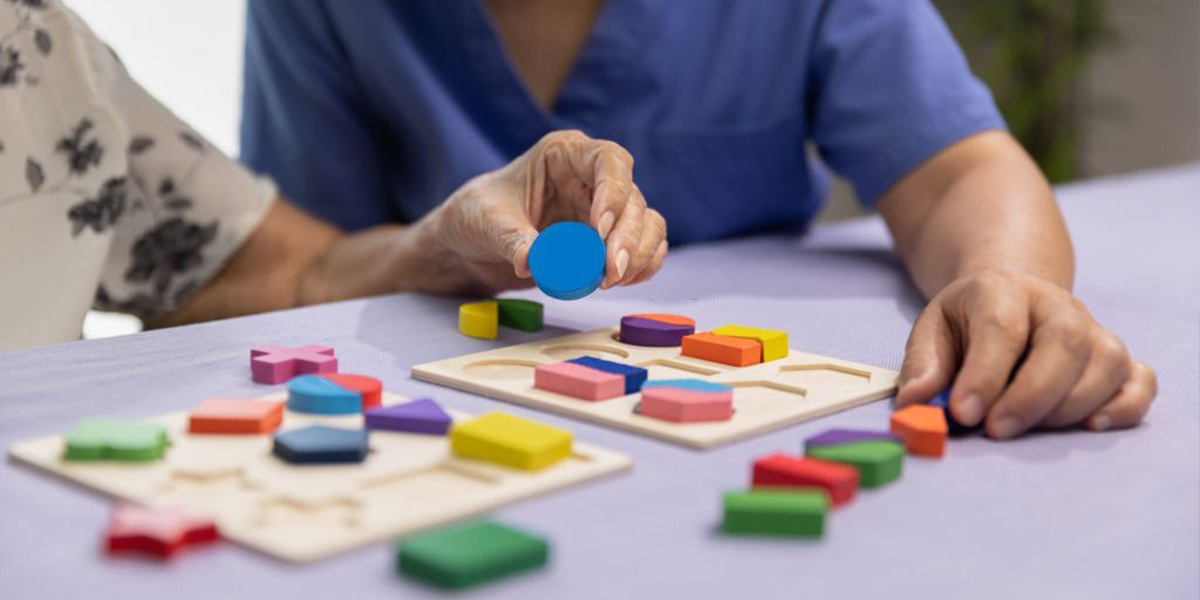As we age, many of us worry about cognitive decline and conditions like Alzheimer’s disease that can take away our precious memories. While Alzheimer’s is a common form of dementia, there’s another category called Potentially Reversible Dementias that offers a ray of hope. In this blog, we’ll explore what Potentially Reversible Dementias are, their causes, and know the connection between diet, brain health, and memory care. Join us on this journey to understand how Potentially Reversible Dementia can be managed, especially in assisted living facilities like Athulya Living.
What Are Potentially Reversible Dementias?
Potentially Reversible Dementia refers to a group of cognitive disorders characterized by memory loss, impaired thinking, and other cognitive deficits that can be treated, managed, and sometimes even reversed when their underlying causes are addressed. Unlike irreversible dementias, these conditions offer hope for improvement in cognitive function. So, early detection and proper intervention are key to effectively managing and potentially reversing these dementias, thereby improving the quality of life for affected individuals, especially seniors.
Common Causes of Potentially Reversible Dementias
- Medication Interactions: Seniors often take multiple medications, increasing the risk of drug interactions that affect brain function. Certain combinations can lead to cognitive deficits. A medication review by a healthcare professional can identify and rectify such issues.
- Vitamin and Nutrient Deficiencies: Deficiencies in essential nutrients like vitamin B12, folate, or Vitamin B3 can impair cognitive function. A balanced diet and supplements when necessary can address these deficiencies.
- Thyroid Problems: An underactive (hypothyroidism) or overactive (hyperthyroidism) thyroid can impact brain health. Thyroid disorders are treatable with medication, which can improve cognitive symptoms when managed effectively.
- Depression and Anxiety: Mental health conditions like depression and anxiety can be similar to dementia symptoms, leading to memory loss and cognitive decline. Treating these conditions with therapy, medication, or a combination of both can lead to a significant improvement in cognitive abilities.
- Infections: Infections such as urinary tract infections (UTIs) and respiratory infections can cause confusion and memory problems in seniors. Timely diagnosis and treatment with antibiotics are crucial to resolving cognitive symptoms.
- Metabolic and Hormonal Issues: Chronic conditions like diabetes and high blood pressure can affect brain function. Hormonal imbalances, such as in menopause, can also lead to cognitive changes. Managing these conditions through medication, lifestyle changes, and hormone therapy can result in better cognitive outcomes.
- Substance Abuse: Alcohol or drug abuse can impair cognitive abilities. Seeking treatment and support for substance abuse can result in cognitive improvement.
- Head Injuries: Traumatic brain injuries (TBIs), even from the distant past, can lead to cognitive issues. Rehabilitation, therapy, and appropriate medical interventions may help mitigate these effects.
- Tumours or Masses: In some cases, the presence of tumours or masses in the brain can cause dementia-like symptoms. Surgical intervention, radiation therapy, or chemotherapy may be necessary to address these underlying issues.
- Sleep Disorders: Conditions like sleep apnea can impact cognitive function by causing sleep disturbances and oxygen deprivation. Managing sleep disorders through lifestyle changes, continuous positive airway pressure (CPAP) devices, or surgery can lead to improvements in memory and thinking.
- Normal Pressure Hydrocephalus (NPH): This condition occurs when cerebrospinal fluid accumulates in the brain’s ventricles, causing increased pressure within the skull. So, in cases of NPH, surgical interventions like shunt placement to drain excess cerebrospinal fluid can lead to remarkable improvements in cognitive function and overall quality of life. Hence, recognizing NPH and addressing it promptly can make a substantial difference which emphasises the necessity of early detection in the context of reversible dementias.
- Delirium: It is characterized by sudden and severe confusion, alterations in consciousness, and cognitive dysfunction. Delirium can be triggered by various factors, including infections, medication side effects, metabolic imbalances, or surgery. The key to addressing delirium-induced dementia is identifying and treating the underlying cause. Once the triggering factor is resolved, cognitive function can often improve significantly. Timely intervention and appropriate medical attention can pave the way for the reversal of dementia symptoms associated with delirium, restoring seniors to their prior cognitive capabilities.
The Role of Diet in Dementia Prevention and Management:
A well-balanced diet is a cornerstone of brain health for seniors. Research suggests that certain foods and nutrients can help prevent or slow down cognitive decline. We understand the importance of a healthy diet for seniors and incorporate it into their daily routines. We also customise and offer food according to each one’s tastes and preferences.
Dementia and Memory Care at Athulya Living:
At Athulya Living, we prioritize the well-being of our residents, including those with dementia-related conditions. Our memory care programs are designed to provide personalized support, cognitive stimulation, and a safe environment. Our dedicated team of caregivers is trained to understand the unique needs of seniors with dementia and to create a nurturing atmosphere.
Furthermore, we also provide Rehabilitation Care for seniors with various health conditions such as post-stroke recovery, brain injuries, joint surgeries, and age-related mobility issues. Through our customised rehabilitation programs, they regain their physical abilities, improve their quality of life, and regain independence in their daily activities. We hold more than eight years of experience in offering geriatric care with expert doctors, nurses, caregivers, and other healthcare professionals. Our centers are present in Chennai, Bangalore, Cochin, and Coimbatore for the welfare of senior citizens where we offer them Transition Care, Palliative Care, Rehabilitation Care, and Dementia Care.
Spiritual Wellness and Dementia
Spiritual wellness can play an important role in dementia care. Engaging in spiritual practices can provide comfort and a sense of purpose for seniors. So, we recognize the importance of spiritual well-being and offer opportunities for residents to explore their spiritual needs, through meditation, prayer, or group activities.
Thus, Potentially Reversible Dementias offers a glimpse of hope for seniors facing cognitive decline. By identifying and addressing underlying causes, seniors can experience improvements in their cognitive function and overall quality of life. A well-balanced diet, combined with expert memory care and spiritual wellness, can further enhance brain health. Athulya Senior Care is dedicated to providing comprehensive care that caters to the unique needs of seniors, making it an excellent choice for those seeking a wide approach to senior living.
Information: This blog is for informational purposes only and should not be considered as a substitute for any treatment or diagnosis. Seek professional help in case of any emergency. Athulya is not responsible for any consequences.





